#this is not so much literary analysis
Text
I made the mistake of going through the recent #Faith Seed posts, and now we all have to suffer for it.
I blame the lack of multifaceted female or femme antagonists for this, but why is it that we all have such a hard time doing away with the Madonna/Whore or Mary/Eve dycotomy? Why is it that we allow ourselves to peel back the layers of contradicting traits that a male antagonist gets wrapped in, but we have to grit our teeth to do the same with their female counterparts?
Hell, I'm still struggling with this myself, and more so in the case of Rachel who is supposed to embody this dycotomy, The Mother of the cult and the Serpent tempting anyone who enters the Garden. So I'm sympathetic to the limited charitability we give her, but am also aware we spoil the male antagonists with it.
Shit, it's easy to see how John lies to himself and the audience about his convictions, to see him hide his doubt from the older brother he so admires. Yet we choose to look the other way when Faith screams about fearing what that older man she is trying to get you to worship, the older man her life revolves around, is going to do to her?
Again, I believe that growing up with media filled with male characters and not enough female characters in different narrative roles is to blame, at least in part. And at least in my case.
#far cry 5#faith seed#this is not so much literary analysis#as it is me talking myself out of learned behaviors#AKA talking TO myself
15 notes
·
View notes
Text
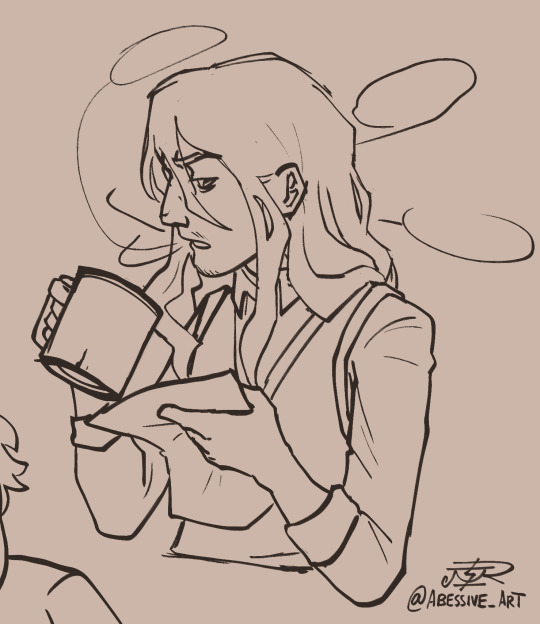
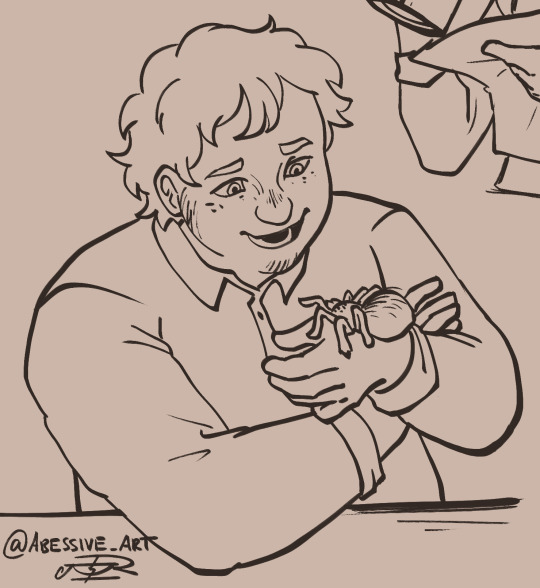
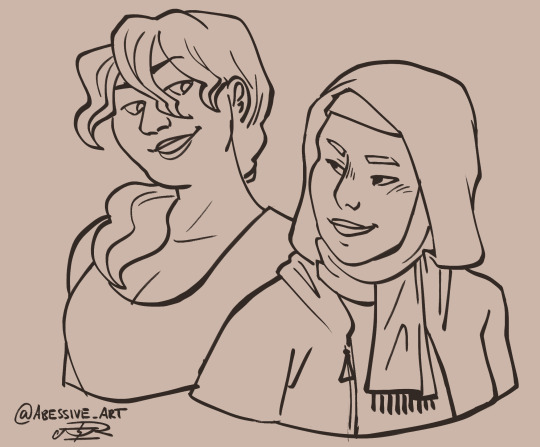
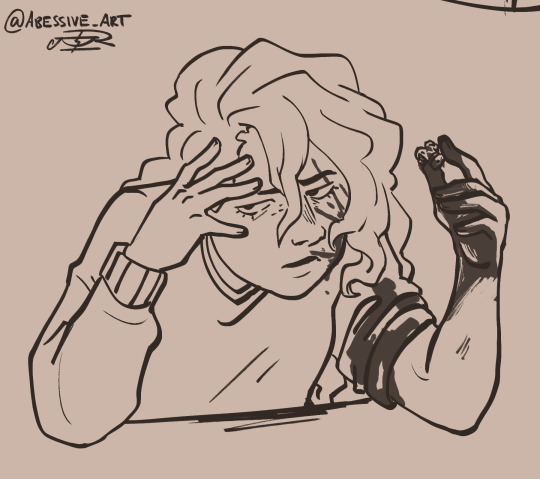
*Archives your Magnus*
#the magnus archives#tma#jonathan sims#martin blackwood#melanie king#basira hussain#daisy tonner#fanart#alice tma#tarantula#PLEASEEEEE PLease please please I love them so much this relisten is wrecking me#messing with my brain so bad i start thinking about tma and my heart n brain get scrambled#(i am very normal about media)#This podcast means sm to me :´) im so glad I came back to it <3#I have nothing new to say about the podcast i.e. literary analysis but oh man i am enjoying the hell out of it#makes me feel happy#myart
1K notes
·
View notes
Text
(i feel like analyzing stuff again so here we go) kaz is smart because he knows people. he loves puzzles, loves locks, loves taking things apart to figure out how they work. he says in soc that you figure people out like you figure anything else out, by taking it apart. kaz is smart because he finds enough out about people to make assumptions.
he knows what people will do, and often times it leaves the ones being duped going "how did he do that? how did he know?" kaz never truely knows something will 100% happen, he's just assuming it will and is almost always right.
in the begining of soc, when the crows are breaking matthias out of hellgate, kaz assumes wrong, though. he knows that jesper has a reputation for being late, so he assumes that jesper will take to the task of releasing the animals like he will anything else he does, and be late doing it. he has, in some sense, taken jesper apart. he knows what jesper does, and he plans around this assumption, however ends up being wrong. nothing extremely consequential happens because of his assumption, but it proves that kaz will assume things with confidence.
a huge aspect to why kaz is so successful in his planning and overall schemes is because he knows how to make a good assumption. he has inej gathering him intel, which enables him to make such confident and correct guesses about how people will act.
one instance of kaz's assumptions being correct is the whole geels and 19 burstraat situation in the beginning of soc. when kaz threatens to burn down geels' lover's home, geels could have not cared, could have shot kaz right there, but he didn't. geels doesn't, and kaz continues very boldly facing him. why? because kaz knows how geels will act.
another instance is in ck when kaz kidnaps alys and uses her to get inej back. at this point, kaz knows how van eck will act. van eck has already duped kaz once, and i imagine after this one of the things kaz does to insure it never happens again is over analyzing and taking him apart. it works in this instance, because kaz has already seen how much van eck cares about a "worthy heir," and alys is literally holding that. kaz has taken van eck apart, and had figured him out enough to make a bold and correct act based on assumption.
all this to say, kaz thinks and thinks and thinks and is always thinking and picking everything apart, and that is the key to why he can get away with everything he does. and maybe one day his assumptions that make him so smart will fail him, and maybe one day they'll be fatally wrong.
#i'm back at it again with the literary analysis#my english teacher loves me#weird statement but yk what i mean#i feel like (and know) that i'm constantly picking apart this duology and i don't think i'll stop anytime soon#i could yap forever but i'll stop for y'all's sake#UGH i just love kaz's character so much#so COMPLEX and so much to ANALYZE#kaz brekker#side note yall i've been spelling brekker like brekkar for the longest time and no one was gonna TELL ME???#kazzle dazzle#six of crows#literary analysis#yapping#yapping fr#six of crows fandom#soc
113 notes
·
View notes
Text
Entirely random Twilight take: I always thought it was sad, how much Bella as a vampire was just entirely written off as a Mary Sue by many, because to me it showed, how little anyone paid attention to what the narrative told us about her as an individual character.
Bella is so good at being a vampire, because she so thoroughly wanted to be one. Because a vampire was what she was always meant to be. It was her destiny, as well as her own chosen destiny. She's the only Cullen, who actually made the choice to be a vampire. She doesn't yearn for humanity like say Rosalie or Edward, because she was born as the wrong species.
The narrative establishes how unhappy she is with being human (even though Bella herself initially couldn't really recognize that that's what it was, as she wasn't an inherent believer into anything supernatural at first), even before she meets Edward. We are shown how clumsy she is in her human body, because this isn't the form she's meant to have.
She's as enamored with Vampirism itself (the beauty, powers, benefits, immortality) as she is with Edward, as we see her repeatedly romanticize Vampirism, even separately from Edward, in the books. I'd go as far as saying, that she would have wanted to become a vampire, even if she hadn't fallen in love with Edward.
This is probably the most interesting aspect about her, yet it flew over so many people's heads, even though this probably would have made her more intriguing to many of said people.
We rarely see this in protagonists and heroes in mainstream media: actively seeking out power (and immortality) like that. Many of them actually prefer a mundane life (well, the "status quo", really) and have powers happen to them against their will, or they reluctantly accept power or positions of power for the greater good. The hero or protagonist, is supposed to be humble and reject power, to prove they are good and worthy. The fact that the female main character of Twilight, of all characters, went against this stereotype, makes the supposedly "bland" Bella rather interesting to me.
"My time as a human was over, but I never felt more alive."
"After 18 years of being utterly ordinary, I finally found I could shine. I was born to be a vampire."
#bella cullen#bella swan#the twilight saga#twilight#twilight meta#so random but I recently remembered this#Bella is so relatable to me for this one thing because I too wished I had such powers and abilities#and wouldn’t need to spend so much of my life time just keeping this mortal engine happy and running#literature analysis#character analysis#literary analysis
50 notes
·
View notes
Text
Interpreting Bilbo’s Speech
As an editor whose job requires the ability to untangle confusing sentences, I maintain that Bilbo’s speech at his 111th birthday party was actually genuine and complimentary. Let’s break this down.
“Alas, eleventy-one years is far too short a time to live among such excellent and admirable hobbits. I don't know half of you half as well as I should like, and I like less than half of you half as well as you deserve."
“I don’t know half of you as well as I should like” can be translated as “Half of you are people I don’t know as well as I wish I did. I wish I knew you at least half again as much as I do.” Literally, “I wish I’d gotten to know you better.”
“I like less than half of you half as well as you deserve.” He may not have a deep affection for this less-than-50% of the party-goers, but he acknowledges that they deserve twice as much respect and appreciation as what he gave them during their acquaintance. Literally, “I know there’s more to be appreciated about you than I knew of or that I am capable of appreciating.”
Note: Since he clearly knows THIS half well enough to know they deserve more of his respect and affection than what he gave them, we are probably safe to presume that they are the opposite half from the first group, who he wishes he had gotten to know better. (Although there is probably some crossover). (This part gets into Math a little bit, which is NOT my specialty as an editor.)
So, if we take his first sentence literally—“Alas, eleventy-one years is far too short a time to live among such excellent and admirable hobbits”—then the whole statement is actually quite genuine. For all his grumbling and muttering about his various neighbors’ and relations’ failings or annoyances, Bilbo really does respect and admire many of them, and he is wise enough to know that there’s more to appreciate in the people he doesn’t care for or didn’t know well than he has managed to discover in his short lifetime with them.
But of course this is Bilbo, so he wrapped it up in a mind-bending riddle and left everyone wondering if they’d been insulted before he abruptly vanished, leaving the party in chaos.
In conclusion: Bilbo’s way of handling the awkwardness of being sincere to a large group of people involves tying his compliments into a knot and then running away forever while they’re distracted untangling it.
I’m not saying this is the healthiest way of dealing with the mortifying ordeal of being known, but it does feel very Bilbo.
#lotr#the hobbit#bilbo baggins#literary analysis#movie analysis#I can't remember if this speech is in the books or not#but anyway#I also know he's much better at sharing his feelings with close friends#so this is probably mostly because he was talking to a huge crowd of people he didn't know as well as his close personal friends#and because he's a tricksy little hobbit#anyway my logic might miss a couple points so feel free to point out your own interpretations!#it was definitely a confusing speech XD
377 notes
·
View notes
Text
putting way too much effort into a silly little comic!wolverine character analysis post. if it flops i'll jump
(the post in question)
#santi talks#he has so much character depth and literary analysis potential it's insane#wolverine#logan howlett#x men#x men 2000#hugh jackman#deadpool#deadpool 3#deadpool and wolverine
32 notes
·
View notes
Text
I'll bite and talk about something that doesn't get enough spotlight in general, which are Demetri's and Eli's family life. So obviously several fic authors have their own twists and flavors to this, but if I may sell you something for a sec.
So far into the series, what we've got are these facts:
Demetri's Mom is the only family member to be mentioned in the show.
Eli's parents were mentioned a couple of times.
That should be enough context to deduce two things:
Demetri could be an only child to a single mother, and;
Eli's parents involve themselves in the stuff that he does — including karate, who knows — though they tend to be tone deaf with his actual needs.
There's strong evidence to why the boys act the way they act (brain functions notwithstanding, but this isn't the post for that), which is why I think these deductions make sense. How their hypothetical upbringing is part and parcel to how characters behave in this series. Of course societal influence comes in second because obviously you've got a show that encourages learning karate as defense against bullies, but this show is also about generational chains and traumas! So why wouldn't their home life inform the way it informs the LaRusso's, Lawrence's, and Nichols'? But I digress.
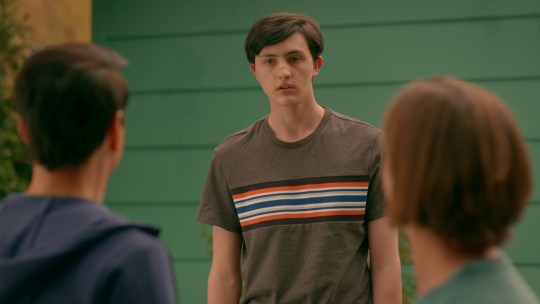
In the span of the entire series, I've held onto this headcanon that Demetri's neuroticism and ability to anticipate his actions carefully stem from a household that needs these systems in place, much more for someone who likes to be on top of things. Since he's just a student, the only authoritative figure who can make executive decisions... is his mom. Add to the fact that she may be a working mom, so when Demetri tells Daniel about certain restrictions in learning karate, what could have made her decide to just write a letter instead vs. taking the time out to go with his son herself? I know I know it's narrative writing but like do you seeeee where I'm at here
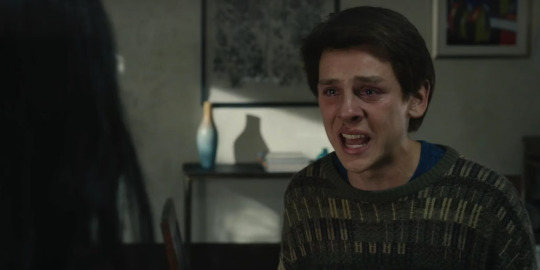
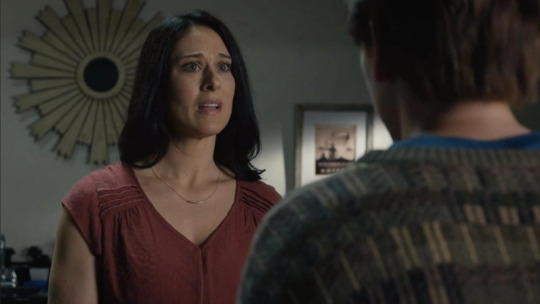
Eli's family life is by far gave us early indications of his dynamic with his mother — but not so a father — in earlier seasons. It's possible that his mom is a stay-at-home one, but if I were to push the bounds of this box even further, I'd even speculate that she's retired early if it meant that Eli's dad is the one making most of the living. Like of course they'd get mad at Hawk for getting a tattoo at his age, I think any parent would! But the way he tells Aisha to exclude him from her stories tells us that there's not a lot that his parents know about the life he lives as Hawk. At this point we all know the kind of effort it takes to successfully carry it out because he has to go home every night. It's either he a) puts in a lot of effort into concealing this identity once he gets home, or b) his parents are rarely ever home, which again, feeds into another assumption that maybe Mrs. Moskowitz works certain hours.
All we know is they're never around a whole lot for these boys, which is sad! and also again, very Indicative of their classification as awkward nerds pre- and early karate. When I read along certain fics that consider and include how the rest of their characters besides the found families they've formed, it gives much more depth and potency to writing them, their flaws, and how they think.
For all we know, Mrs. Alexopoulos could be a lesbian making fun of her son for not slinging pussy like she does being rizzless unlike her, but don't let me explain that when we have @demetriandelibinaryboyfriends!
#binary boyfriends#demetri alexopoulos#eli moskowitz#cobra kai#this isn't so much an analysis as it is an obvious statement to include/consider when writing them with their home lives as factors#sure the writing in the show isn't top caliber#but to /some/ credit they've managed to give us literally bits and pieces of it before letting the boys set sail in a sea of violent waters#so let's just make do!#i need more character studies that deal with their folks. mentions of how their home life is. their dynamics.#bunny_bones_studio if you somehow happen to have a tumblr now and are reading this#this one also goes out to you because your fic about demetri's letters is so well-written (Just Wanted To Let You Know)#also highly recommend @baldwinboy5ive's fic Persistence of Vision#because the mention of either of their parents there is so well-utilized as a literary device for one Very Heartwarming segment to the fic#and again: different authors interpret this differently but i'm a bit tired of seeing similar patterns in establishing their home lives#when there's a lot we can make do with what we have and then spitball from there#i'm in the process of digging and spelunking through the archive these days! all the other great stuff is hidden in those pages!!!!
32 notes
·
View notes
Text
i am SO pissed abt the whole 'sophie letting alvar go' thing. that had the potential to be such a good arc for her character and fitz's, but shannon made it seem like she was in the right. she wasn't. that was not her choice to make.
sophie is a character that has stayed relatively the same throughout the series. she is in desperate need of an arc and this event could have triggered it. i understand why she did it but i'm annoyed that shannon made it seem like fitz was in the wrong for being angry about it.
shannon tries to create a 3D character with 'flaws' but none of her flaws seem to impact the overarching plot at all. shannon has her favourites (keefe and sophie) and she is afraid of ever putting them in the wrong.
keefe has almost never been held accountable for his admittedly flawed actions- and for him to be a complex and deep character like shannon so clearly wants him to be he needs to have flaws. his actions cannot be excused by his love for sophie. that is a (bad) explanation not an excuse.
shannon needs to stop using characters like fitz and stina as her own personal punching bag and start adding more nuances to her main characters.
my problem with the series is that shannon has created tropes and figureheads instead of realistic human beings, and when she does occasionally create real characters the narrative faults them for it. they are always in the wrong for understandable and pretty much right reactions to things that are wrong. i love sophie and keefe, dont get me wrong, but they are too focused on. by focusing only on sophie and keefe, she has rid them of their flaws and made them pretty boring, making her 'hated' characters far more interesting by comparison. let them make the mistakes. let there be consequences. let sophie and keefe be messy and imperfect and flawed. please please please shannon i am begging you give your characters some actual character
#also canon keefe has barely any motivation besides sophie??#this is just reverse bella and edward#i love them all so so much but for the love of god#kotlc#keeper of the lost cities#kotlc crit#blue analyses things#literary analysis#sokeefe#shannon messenger
39 notes
·
View notes
Text
Okay so, I wanna preface this by saying that I have not read Sanderson’s other books so this is not a discussion about his actual abilities as a writer, and I’m not saying that he’s in anyway a bad writer. I do not envy the situation he was in At All, it must’ve been incredibly difficult to be given the responsibility of finishing such a long and beloved story as Wheel of Time. Trying to honor RJ’s story and characters when you are jumping in at the climax and expected to finish it in a way that the fans find satisfying when there is no way to make Every fan happy with the ending. Okay with that out of the way let’s talk.
So i have a lot of feelings about the final three books of Wheel of Time. There were many parts I enjoyed and there were also parts I was disappointed by. Personally, I felt like many aspects of the last three books felt rushed and incomplete and the pacing a bit odd in places and a lot of that comes down to the fact that it was originally meant to be one giant book, but like- that would’ve been ridiculous and I agree with the choice to break it up into multiple books. However I honestly think they should’ve just broke it up into more than three books to properly to pace them. There were a lot of things that Needed to happen that I think ended up causing certain things to get cut, for instance I do believe a big portion of both Mat and Min’s storylines in those last books were cut for time, specifically I think there was probably originally a lot more time dedicated to dealing with the Seanchen. What I believe to have happened is that Sanderson was given the notes about where the Black Tower needed to be and decided to dedicate the time to it and in exchange he cut the Seanchen plot line for pacing since the Seanchen were Technically already solved. Technically. Now controversial opinion but I did actually like Androl, however, I think he and the rest of the Black Tower suffered from having their storyline rushed. The plot line in the black tower should’ve started after the Ashaman with Rand betrayed them as we got to see the corruption already seeping into the Black Tower. Sadly that’s not what we got, but it honestly deserved an entire book to properly introduce it and it would’ve benefited from having pre-established characters that we cared about be more involved. Other parts of the story I think deserved more time dedicated to, the actual process of stealing the horn of Valere back from the White Tower, I wanted a heist mission with Faile and the Band but that is just personal preference lol. More time learning about Slayer and the red veiled Aiel, they were introduced and then promptly stopped actually mattering outside of being enemy fodder. Literally everything about Faine and the Evil of Shadar Logoth, Faine dying so quickly will forever disappoint me, he was a main antagonist since book one and his death felt very quick and unceremonious, like just tying up loose ends.
Next is issues with characterization. Once again I do not envy Sanderson’s job here at all. This type of thing isn’t easy but I can also see exactly where the issues were. Sanderson by his own admission didn’t understand Mat, and he Did get better at writing him but the damage was already done unfortunately and there wasn’t enough time to properly fix the issues with Mat’s characterization. Mat was not the only character whose characterization was flattened however, Aviendha and Tuon for instance also lacked a lot of their original nuance. I think it’s very clear where Sanderson struggled and that is with unreliable narrators. Characters that Sanderson seems to both enjoy the most and successfully write in a compelling way are characters who very straight forward and honest, their internal monologue matches their actions, and they reliably narrate their stories. Characters like Perrin and Galad thrived under Sanderson’s writing style. Androl is a very obvious example of this archetype being one that he’s comfortable writing. The issue he faced with both Mat and Tuon is that their unreliable narrators who act inconsistently to an outsider perspective and I think for Mat especially Sanderson struggled to get past his first impression of Mat. The biggest issue with Sanderson’s version of Mat is that his character arc was reset, Sanderson’s Mat was still running away from his destiny and trying to avoid Rand, something Mat had already worked past in books four and five with Melindra and the Rhavin incident teaching him to accept his destiny and embrace his role as Rand’s General. This meant that Mat and Tuon’s relationship lost a large part of its nuance and Mat’s actions felt out of character and immature for the point in the story we reached. There’s also the difference in how RJ wrote Mat’s “flirtatious play boy” status versus how Sanderson portrays it and it can feel a bit jarring at times, and just in general, I feel like Sanderson often wrote Mat as “stupid” where he very much isn’t. He’s reckless and mischievous but never stupid and I think Sanderson equated his recklessness with stupidity in some places.
Writers play favorites, and it does show, RJ’s favorite was Mat and Sanderson’s favorite was Perrin and both are very obvious preferences. Poor Rand was neither writers favorite but it’s okay because as the protagonist he at least got consistent page time dedicated to him. RJ definitely paid more attention to Mat than Perrin and Sanderson did vice versa. So I’m not complaining just because I wanted Mat to get more page time. My issues with it are that Mat ended up feeling a bit underwhelming during the last battle. Where all other characters got to have their spotlight moment during a Memory of Light, Mat didn’t; and perhaps that’s because Towers of Midnight was originally part of a Memory of Light so Mat had got his big moment in the final book during the original draft. The Seanchen overall felt like it was resolved in an underwhelming manner, as did the Shadar Logoth plot line and it just so happens that both of those plot lines were Mat’s and I do think Sanderson’s bias informed his decision at least subconsciously when choosing which storylines to trim down.
In summary I would’ve rather Sanderson made it five more whole books if it meant that all the plot lines could be given enough time to be resolved in a fully satisfactory way.
#wheel of time#wheel of time spoilers#wot meta#wot book spoilers#brandon sanderson wot books#literary analysis my beloved#I love this book series so much#I really wish I could’ve read the finale that RJ would’ve written
58 notes
·
View notes
Text
honestly this upd8 did more to make me hate vriska less than 2 years of people telling people who don't like vriska to die on twitter and an entire pesterquest route did
#hsbc#hsbc spoilers#hsbc upd8#dont get me wrong. vriska is a fantastically written character#however. she reminds me too much of people who have hurt me in permanent ways#so i physically can't like her#i tolerate her for the purposes of literary interpretation and analysis but she is not my troll of choice#if anything sometimes i astral project her mommy issues on snowman instead of the spider or mindfang#to give myself a fucking break
21 notes
·
View notes
Text
hey, just putting out some feelers for any essays or interpretations of Sleep Token that people really like, they don't have to be on tumblr. it can be your own or someone else's, and it can be about the music or the art or the sound design or lore, and it can be about technical aspects too
feel free to reblog this and pass it around btw
#sleep token#sleep token lore#sleep token lyrics#idk what else to tag this as so people see it#i've been debating writing my own interpretations/analysis but i want to see what else is out there i think it's interesting#literary analysis is a quiet hobby of mine that i don't indulge in often#and while i'm not sure how much my writing would veer into an actual literary analysis i do want to see other peoples perspectives#i think it's fun to dissect a work of art
34 notes
·
View notes
Note
Alright wise guy, what are your thoughts on the theme(s) of the first Mistborn book. This is literally an excuse for you to ramble about it, have fun.
VOID I LOVE YOU SM
So spoilers for Mistborn: The Final Empire! If you haven't read it, please beware because under the cut, Here There Be Spoilers
(and also beware, Very Long post under the cut!)
The big running theme in The Final Empire is trust. Who can one really trust? Is it worth it to put your life in the hands of other people? What says they won't betray you as soon as it becomes favorable to do so?
Honestly this really is what Vin's character arc in the first book is about. At the beginning of the book, she's trapped in a low-level street gang where everyone is always out to get everyone else. Heck, the second time the audience ever sees her use her powers is when she is helping her boss betray a business partner.
Vin's brother has beaten into her the idea that she can trust nobody, not even him. Everyone is always out to hurt her or take advantage of her, and if she does not prove her immediate worth to her group, then at best she will be kicked out.
This, of course, is not helped by the fact that she is part of the literal slave class! Which is a whole nother essay tbh.
Then Kelsier takes her in and everything changes. There's a scene early on in the book, after vin formally joins the crew, where Kelsier and his men are all laughing and enjoying themselves while plotting their Big Plan™. And Vin, who does not trust any of them, is on the outside, quite literally. She's outside the room, watching them plan, wishing she could be included but not allowing herself to, because at this point in the book she still thinks they could betray her at any time.
I think now is a really good time to mention that being a Mistborn is built on secrecy and paranoia. Mistborn are literally the nobility's assassins. They hide their identities under hoods that blend into the mist so as not to be seen. So their powers cannot be used against them or their Noble Houses. In broad daylight they have to pretend to be normal people, or at best, regular Mistings. They can't trust anyone with the truth that they are Mistborn.
(Heck, even a quarter of their powerset- Copper and Bronze- create mistrust. With Bronze, after all, one can hear the allomantic pulses of burning another metal. Copper, on the other hand, blocks that; the use cases for these two metals lies in paranoia that someone else can use their Allomantic powers against you.)
Anyways! So we've explored some of the different aspects of mistrust in Mistborn, so what's the counterargument?
In a word: Kelsier.
Kelsier shakes up everything that Vin believes about how relationships work. He introduces his crew as something different- despite being a thieving crew, they operate under a principle of trust and camaraderie. "My crews rely on trust," Kelsier says at one point. In direct contrast to the dirty, paranoid crews Vin worked with before, Kelsier's crew is welcoming, understanding, and trusting of her.
But Kelsier's trust isn't just talk, either. When we learn that the crew believes Mare betrayed them in their last heist, Vin asks Kelsier how he could love Mare even though she betrayed him. Kelsier answers that given the choice between loving Mare and being betrayed or never knowing her, he would choose loving her. "I'd rather trust my men than worry about what will happen if they turn on me."
In the same passage as above, Kelsier poses a question to Vin: where has she been happier? with the old crews that we built on lies and suspicious, or with Kelsier's crew, who trusted each other and let their guards down? It's a rhetorical question, and the meaning is clear: Vin and Kelsier both are happier for risking themselves in order to be loved.
I don't think I've nearly done this topic justice. There are a million more points I could pull out and point to, but I want to end with my favorite quote from The Final Empire. It's from Vin, in Chapter 32. She says:
“Once I may have thought you a fool, but… well, that’s kind of what trust is, isn’t it? A willful self-delusion? You have to shut out that voice that whispers about betrayal, and just hope that your friends aren’t going to hurt you... Distrust is really the same thing, only on the other side. I can see how a person, given the choice of two assumptions, would choose to trust.”
#I have SO MUCH MORE I COULD SAY ABOUT THIS#but this post was too long already#THANK YOU SO MUCH VOID FOR ASKING#i didn't even get to the part about how allomancy itself is also an act of trust#since yknow. you have to have some level of trust to be able to push yourself through the air#and how Vin's first time steelpushing herself in their air is a literal AND metaphorical leap of faith#I have so many thoughts on this book#mistborn#mistborn the final empire#mistborn era 1#kelsier#vin mistborn#vin#cosmere#brandon sanderson#i love literary analysis#taking the tools they taught on boring books and putting it into the things im passionate about#literary analysis#taiga says things
139 notes
·
View notes
Text
Every day I am haunted by the fact JJK could be amazing but it will be just idk Bleach or something
#I've seen a lot of people complaining about the fact that it's impossible to fit the ending of every unfinished arc#in the five chapters that remain for the manga to end for good#And it all just... legitimises my fear and apprehension haha#And it's a pity! It's a pity! The dynamics were so good! And yet nothing! Sukuna was so good! And yet nothing!#It was so nice how he seemed to play with the idea of transcending human categories and values but even the values of curses so to speak#Well beyond everything. Well beyond positive/creative nihilism even! He was not like Mahito#I wonder if Mahito is more a negative nihilism with a funny edge or a positive nihilism. For now it seems positive#with how he seems to have said something like 'nothing matters so we can do whatever we want and create what matters'#But Sukuna transcends all that! It could have been interesting to see how that developed in a way that wasn't just childish edginess#But no. And then there's all the idea of curses and sorcerers not being all that different#and so not really entirely possible to say one side is good and the other bad#There was the idea of the very source of powers with fear and love playing a role here in such a juicy way#And then there's the entire thing happening with Gojo as a concept and the very concepts he plays with which I could eat like an apple#but also I would let those very concepts eat at my heart as a worm inside an apple#Full of holes and rotting inside out and yet delighting at the sweetness#It could all be so good! And yet! Most of the manga is a few sketched dynamics and concepts and a very long fight with Sukuna#promising half finished arcs#WHY it could have been so good. And I don't think criticism is a matter of 'fans being spoiled! Go write your story!' or something#It's not a matter of things not going as fans would want them to be. It's a matter of not writing well#or cohesively things established by the author themselves. And I think that's a fair criticism#If we are to take manga as an art‚ which I wholeheartedly support‚#then we can subject mangas to artistic or literary or whatever you want to call it analysis. There are works that are better constructed#than others‚ and there are works that have good ideas but poor execution. And it's always a pity#In the case of JJK it's truly breaking my heart and the comments I see around about these five last chapters are not helping xD#God it could be so good. So good. And I'm not talking about in specific to me‚ which yes that too given the topics‚#but just so good in general. It could be so good. It could have been so good#And yet it's starting to look more and more like any other shonen. It truly breaks my heart haha#I talk too much#Jujutsu Kaisen#I used Bleach because I think that's one of the mangas that has been the most a let down to the friends I have who like shonen
12 notes
·
View notes
Text
i think what's really compelling about tsh is how out of the main players (and really out of everyone) there isn't one Good Person (in the sense of moral right/good vs wrong/evil story dichotomy type Good Person). Like,,, henry vs bunny alone. I feel like there's an instinct among readers (at least those I've seen on tiktok, which, i know, im sorry) to go Henry is Good and Right and Bunny is Evil and Wrong particularly upon first reading and then when you think critically it turns to Bunny is Actually Good and Right and Henry is Evil and Wrong to make sense of the story but both are Shitty, Terrible People.
Henry is a self-important, elitist serial-killer who is completely detached from the world around him from no one's fault but his own and Bunny is a leech who considers biogtry and a guiness world record catagory and blackmails his friends over a murder not because they killed an innocent man but because they didn't include him.
I think this is what makes tsh so compelling. You're not there to take sides, no matter how hard Richard (unconsciously?) tries. You're there to watch a series of terrible events unfold and to consider the complexity of human morality. Not one person is either Good or Evil. It's impossible and destructive to look at people that way and I think that's how tsh messes with you and I love it. I don't think Donna Tartt wants you to forgive or justify anything that anyone does, but to simply perceive them and your reactions to it
#this is why i love tsh so much#also this is so disjointed and i apologise lmao#but i was thinking as i wrote it#tsh#donna tartt#the secret history#the secret history analysis#richard papen#henry winter#bunny corcoran#francis abernathy#camilla macaulay#charles macaulay#julian morrow#dark academia#booklr#readblr#litblr#books#literary analysis
486 notes
·
View notes
Text
Something to be said about the similarities between Mr. Melancholy and Owen's Dad. The way Owen's Dad is always this oppressive presence throughout the movie even when we don't see him much. When we see Owen catch him watching TV and his facial features are obscured by shadows, in a way that makes him look even more like Mr. Melancholy.
Owen's father is also white, seeing as I am nonblack this is not my place to speak, but I have heard from friends and other people from Mixed families that there is a specific mistreatment (namely, Racism.) of Black family members per part of white family members.
I was surprised when I found out Jane Schoenbrun isn't black, because that sounds like such a specific experience and yet it seems to be portrayed well and respectfully.
#i need to look at every corner of this movie#i wonder. did Jane consult some specific people for those aspects?#i dont think you can separate the aspect of Race from the Gestalt of TVGLOW but maybe i am looking too much into it#it's a masterpiece is all.#it's so good.#fifth rewatch#i saw the tv glow#cw racism#bad literary analysis
11 notes
·
View notes
Note
RELIGION? IN MY DSMP? MORE LIKELY THEN YOU THINK
Anyways would you like to have a debate like Ancient Greek scholars about religious imagery on the DSMP
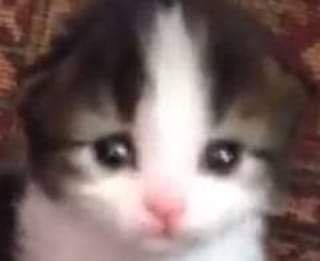
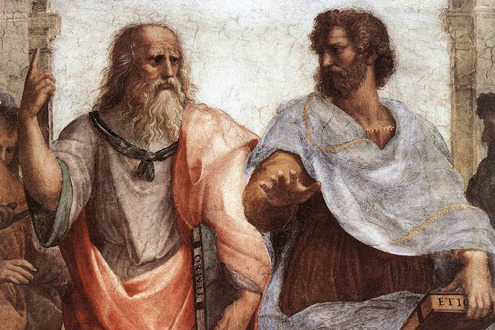
“…and every revival only births a perversion of the original, and yet a return to form and renewal of the mission. Wilbur brought back to ambition, Tommy to fear, Techno to anarchy. This is because they were not properly revived through holy means, instead in symbols associated with satanic imagery; a grimoire, a totem. The revival book’s association with Dream echos ideas of Satan offering power that ultimately corrupts. Other symbols of Christianity show up beyond souls, revival, and satanic imagery, likewise tied to Dream. In the garden of Eden—”
“Golden apple as a symbol of the temptation of power! Of course of course! Knowledge as power, the fall of man from grace. This shows particular on the summit meeting between Techno and Dream, wherein a god apple is given by Dream. This falls neatly into parallel with Eden, where Eve is lured with the promise of having the same wisdom and thus power as god. It is the temptation presented, power promised in the same breath as suffering and conflict…”
#Imma be real I fixated on the characters and not the lore so much but I am so down bc I love silly literary analysis#Crap now I’m thinking of exodus/pogtopia parallels#Trying to find a way to work in cannanite>cain as a symbol of farming v animal husbandry. Brothers. Betrayal. Techno>plants tomy>animal-pet#Aw hell#Apparently I have thoughts about this#Anyway totally down to discuss stuff though warning I’ll probably mess up details bc it’s been awhile#Angel of death Phil…I have Thoughts for you……..#Dsmp#dsmp analysis#dream smp#c!tommy#c!wilbur#c!techno#c!dream#mcyt#dsmp meme#tw christianity#christian imagery#something to nom on
34 notes
·
View notes